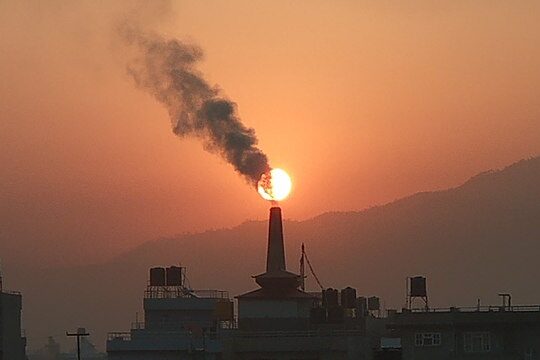
Research has revealed that Europe is failing its children in terms of air pollution, with almost all children on the continent being exposed to air that does not meet healthy standards.
The sources of pollution are not being adequately addressed, resulting in the premature deaths of at least 1,200 children annually and causing numerous physical and mental health issues with lifelong consequences, according to the European Environment Agency.
Gerardo Sanchez Martinez, an expert in environment and health at the EEA, said: “You can’t think about children as little adults, when it comes to air pollution. They receive more pollution, and it starts in the womb and continues in kindergarten and onwards. We are failing our children on air pollution.”
Children are particularly vulnerable to the effects of polluted air, as it can have long-lasting impacts on their development. The negative impacts can begin before birth, with studies linking pollution to low birth weight and premature birth. Exposure to high levels of pollutants during childhood has been linked to reduced lung capacity, asthma, respiratory diseases, ear infections, allergies, and potential effects on brain development.
Children are more exposed to polluted air than adults due to their faster breathing rate, proximity to the ground, and increased outdoor activity. The study by the European Environment Agency reveals that approximately 110,000 disability-adjusted life years are lost each year among children under 18 years of age in Europe.
While reducing the sources of air pollution, such as road traffic, coal and solid fuel burning, and industrial emissions, is crucial, specific actions should also be taken to protect children, according to the agency. This could involve establishing clean air zones around schools to limit traffic and prohibit idling engines. Local authorities and schools should also consider planting trees, ivy screens, and hedge fences around playgrounds. Encouraging alternative walking routes to schools that avoid heavy traffic can also help, and improving the design of school and childcare facilities with proper ventilation and air filters can reduce children’s exposure to pollutants indoors and outdoors.
Hans Bruyninckx, executive director of the EEA, urged countries to do more. “Air pollution levels across Europe are still unsafe and European air quality policies should aim to protect all citizens, but especially our children, who are most vulnerable to the health impacts of air pollution,” he said. “It is urgent that we continue to step up measures at the EU, at national and local level, to protect our children, who cannot protect themselves. The surest way to keep them safe is by making the air we all breathe cleaner.”
The United Kingdom was not included in the assessment conducted by the European Environment Agency due to its post-Brexit decision to withdraw from EEA membership. However, other non-EU countries such as Norway, Switzerland, and Iceland remain members. The report, titled “Europe’s Air Quality Status 2023,” covers 37 countries, including all EU member states and countries like Turkey, Serbia, Kosovo, and Montenegro. It examines air pollutants such as particulates, nitrogen dioxide, ozone, and sulfur dioxide.
Eastern European countries ranked poorly in the assessment, largely due to coal burning for domestic heating, while industrial pollution in the Po Valley was identified as a significant problem in Italy.
Across Europe, 97% of the population, regardless of age, is exposed to air pollution levels that exceed the safety standards set by the World Health Organization.
The EU aims to limit PM 2.5 (particulate matter with a diameter of 2.5 microns or less) to 10 micrograms per cubic meter and nitrogen dioxide (NO2) to 20 micrograms per cubic meter by 2030. These measures are expected to reduce premature deaths caused by air pollution by 55% by 2030. The WHO guidelines recommend 5 micrograms per cubic meter for PM 2.5 and 10 micrograms per cubic meter for NO2.
In the UK, the environment secretary, Thérèse Coffey, stated earlier this year that the government would not align with EU air pollution limits until 2040, despite expert advice suggesting it could be achieved within this decade. However, air pollution experts have pointed to research from King’s College London and Imperial College London indicating that the UK government could meet the more stringent targets, which are supported by the public, by taking stronger action against pollution sources such as diesel cars and wood-burning stoves.
——————————————————————————
At Natural World Fund, we are passionate about stopping the decline in our wildlife.
The declines in our wildlife is shocking and frightening. Without much more support, many of the animals we know and love will continue in their declines towards extinction.
When you help to restore a patch of degraded land through rewilding to forests, meadows, or wetlands, you have a massive impact on the biodiversity at a local level. You give animals a home and food that they otherwise would not have had, and it has a positive snowball effect for the food chain.
We are convinced that this is much better for the UK than growing lots of fast-growing coniferous trees, solely to remove carbon, that don’t actually help our animals to thrive.
This is why we stand for restoring nature in the UK through responsible rewilding. For us, it is the right thing to do. Let’s do what’s right for nature!
Support our work today at https://naturalworldfund.com/ and join in the solution!

